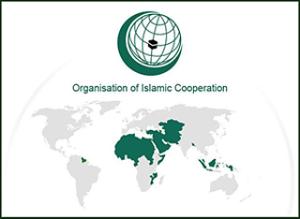Researching Islamic corporate responsibility
Tue, 11 Dec 2012 16:34:00 GMT
Western companies should adopt Islamic business principles urges Indonesian PhD student
 BUSINESSES conducted on strict Islamic principles avoid any form of speculative activity and they must not be involved in anything that is harmful to society. These are ideas that western companies would do well take on board, argues Sartini Wardiwiyono (pictured), an Indonesian lecturer-turned-PhD student.
BUSINESSES conducted on strict Islamic principles avoid any form of speculative activity and they must not be involved in anything that is harmful to society. These are ideas that western companies would do well take on board, argues Sartini Wardiwiyono (pictured), an Indonesian lecturer-turned-PhD student.
Based at the University of Huddersfield, she is carrying out research into Islamic corporate social responsibility and since relocating from Indonesia she has taken up frequent opportunities to present and discuss her work and ideas at a succession of conferences, in the UK and on the Continent.
The most recent was a large-scale convention for Indonesian scholarship and culture held in London. “It was a fantastic event, attended by Indonesians from around the world, working or studying outside the country,” said Sartini, who delivered a paper dealing with the Islamic approach to corporate social responsibility.
 She is from the Yogyakarta region of Indonesia and was a lecturer in accountancy and head of the accounting department at Ahmad Dahlan University before winning a scholarship from the Directorate General of Higher Education of Indonesia that enabled her to embark on PhD study overseas.
She is from the Yogyakarta region of Indonesia and was a lecturer in accountancy and head of the accounting department at Ahmad Dahlan University before winning a scholarship from the Directorate General of Higher Education of Indonesia that enabled her to embark on PhD study overseas.
She was drawn to the University of Huddersfield because of the reputation and research outputs of Professor Chris Cowton, (pictured left) who is Dean of the Business School and a widely-acknowledged authority on business ethics. He is Sartini’s supervisor for her PhD, which she aims to complete in 2014, when she will return to Indonesia and resume her lecturing career.
The distinctive feature of corporate social responsibility in the Islamic world is that a business must be held accountable not only to society and other stakeholders but also to God, says Sartini.
Large numbers of companies in the Islamic world, especially in those countries that belong to the Organisation of Islamic Co-operation (shown below highlighted in green), operate under principles – such as the probation of interest – laid down by Sharia Law. But even in the USA and Europe there is a representative sample of firms that acknowledge Islamic ideas about corporate governance, avoiding any form of speculative or gambling activity, according to Sartini.
 Meanwhile, she is pleased that she chose the University of Huddersfield, where she conducts her research as a member of its Financial Ethics and Governance Research Group.
Meanwhile, she is pleased that she chose the University of Huddersfield, where she conducts her research as a member of its Financial Ethics and Governance Research Group.
“I think Huddersfield is a really good research environment. I can find all the material I need,” she says. “Also I can meet different students from so many different countries.”







